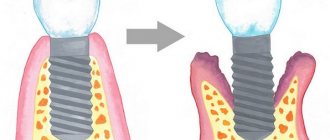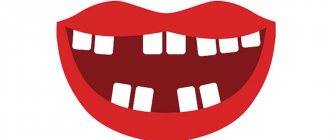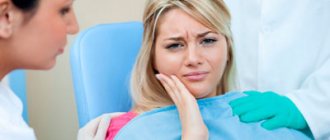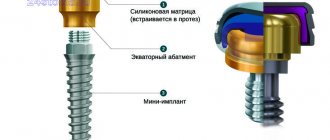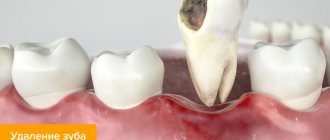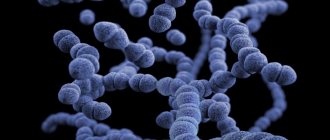The indirect toxic effect of antibiotics on the liver and biliary system is known through toxic products of the transformation of antibiotics in the body (metabolites). Some metabolites bind to liver substances (glutathione, etc.) and reduce the toxicity of antibiotic breakdown products and improve their excretion from the liver with bile. In this case, the bile may become viscous, and stagnation of bile in the gallbladder may be observed with the formation of suspension and flakes (i.e., bile sludge), which are risk factors and early signs of stone formation in the gallbladder.
Patient K., 40 years old, consulted a gastroenterologist about periodic aching pain in the right hypochondrium, heaviness after eating, and rarely bitterness in the mouth. The patient has been suffering from these sensations for several years; these sensations are provoked by long breaks in eating. Heredity is not burdened.
Effect of antibiotics. Objectively
- satisfactory condition,
- sclera and visible mucous membranes of normal color,
- the abdomen participates in breathing, is painless on palpation in all parts, gall bladder symptoms are negative,
- liver at the edge of the costal arch.
The patient is suspected of having a violation of the contractile function of the gallbladder (dyskinesia). To clarify what dyskinesia is, an ultrasound examination of gallbladder function (cholecystokinetic test) with a test breakfast (sorbitol) was prescribed.
Prevention
To avoid discomfort associated with antibiotic therapy, it is recommended:
- take medications in the dosage prescribed by the doctor (at regular intervals);
- take the tablets with plenty of water;
- adjust your diet (at least for the duration of treatment), give up fatty, fried and other “heavy” foods, so as not to further overload the liver, gall bladder and stomach;
- Upon completion of the course, you should definitely take probiotics (drugs that “introduce” beneficial bacteria into the intestines).
As you can see, the appearance of bitterness in the mouth is a common side effect of antibacterial therapy for various diseases. The cause of the problem lies in the increased functional load of such medications on the liver and gall bladder and, as a consequence, general intoxication of the body. In addition, such treatment often leads to exacerbation of diseases of the gastrointestinal tract, which, in turn, also provokes periodic or constant discomfort. It is necessary to combat bitterness in a comprehensive manner, based on the reason for its occurrence.
Ultrasound results
Ultrasound of the gallbladder dated January 12, 2019: the shape is irregular due to the presence of kinks in the projection of the neck and body, dimensions 63*25*25 mm. The walls are not thickened, uniform in density, single-layer. The hepatic choledochus is 3.4 mm (the norm is 6 mm), it is not traceable throughout its entire length, it is passable, the contents are heterogeneous, the walls are moderately compacted. The contours are smooth and clear. The cavity is heterogeneous due to hypoechoic fine suspension. The initial volume of the gallbladder is 18.81 cubic cm. After giving a trial breakfast at 30 minutes, the gallbladder decreased by 51%.
According to ultrasound and clinical data, it was possible to conclude that the patient has a congenital deformation of the gallbladder in the neck and body with signs of bile stagnation - dyskinesia of the hypotonic type ("flaccid" gallbladder) with the presence of hypoechoic fine bile (sludge).
Solution
It is possible to eliminate bitterness in the mouth when taking antibacterial drugs only after undergoing a comprehensive diagnosis from a doctor. After collecting anamnesis, analyzing the patient’s symptoms and complaints, the specialist will determine why the strong bitterness appeared and prescribe treatment. The first thing you need to do to get rid of discomfort is to cleanse the body of toxins (products of bacterial breakdown).
For this purpose, as a rule, herbal preparations are taken that remove “pollutants” from the intestines, liver, and restore the healthy functioning of all organs of the digestive tract. Thus, natural medicines with the root of calamus, anise, and mumiyo have a good clinical effect. Another answer to the question of how to remove bitterness in the mouth after long-term use of antibacterial drugs is to drink enterosobrents.
Thus, activated carbon, Enterosgel, Eliminal-gel have pronounced adsorbing properties, bind toxins and remove them from the body. After a comprehensive cleanse, it takes time to “populate” the intestines with the right bacteria that play a role in digesting food. Special tablets help to cope with this task - pro-, prebiotics (Enterozermina, Hilak Forte) and diet correction - eating a large amount of fermented milk products (kefir, yogurt).
Enterosorbents, probiotics, hepatoprotectors are the main groups of medicines that will help restore the “healthy” functioning of the gastrointestinal tract after antibiotic therapy
When a patient has a bitter taste in the mouth due to the fact that antibacterial therapy has provoked an exacerbation of gallstone disease or other problems with the gallbladder and liver, treatment measures will include:
- replacement (cancellation) of drugs;
- taking herbal or synthetic choleretic compounds;
- use of anti-inflammatory drugs;
- symptomatic therapy (use of painkillers).
Choleretic agents improve the flow of bile, relieve spasms, and remove the unpleasant taste of bitterness in the mouth. Ibuprofen, Diclofenac and other drugs with anti-inflammatory properties relieve pain and reduce the intensity of the inflammatory process on the walls of the liver (gallbladder). For severe pain, patients are prescribed antispasmodics (No-Shpu, Spazmalgon, Papaverine). Due to the excessive hepatotoxic effect of antibiotics after treatment, patients may develop acute liver failure.
What to do in this situation after confirming the diagnosis:
Rotten breath
- maintain bed rest, reduce the proportion of protein foods in the diet;
- discontinue the corresponding drug;
- carry out detoxification therapy: saline solution is administered intravenously;
- in severe cases of pathology, the use of glucocorticosteroid (hormonal) medications is indicated - they relieve inflammation, slow down the destruction of hepatocytes (liver cells);
- After detoxification, patients are prescribed drugs - hepatoprotectors (“protectors” of the liver).
While taking antibacterial medications, it is recommended to eat as little “heavy” foods as possible (fried, fatty, smoked) and drink plenty of fluids (up to 2.5 liters of water/day). If the answer to the question of why there is bitterness in the mouth is associated with an exacerbation of diseases of the stomach or duodenum, after taking antibiotics (usually an ulcer), antacites and a therapeutic diet are prescribed (table No. 1).
Force Majeure. The effect of antibiotics on the biliary system
The study was not carried out in April, because The patient had an attack of acute appendicitis, surgery, then a two-week course of antibiotics.
After 2 months, pain in the right hypochondrium, belching, bitterness in the mouth, and intestinal discomfort began again. And only in September the patient decided to do an ultrasound of the gallbladder and consult a gastroenterologist.
On ultrasound, the cavity of the gallbladder is heterogeneous due to the presence of hypoechoic fine suspension and putty-like bile, occupying about 2/3 of the lumen of the gallbladder. The maximum contraction of the gallbladder was 25.1%.
The patient shows pronounced negative dynamics in the gallbladder, most likely associated with the course of antibiotics: the contractile function of the gallbladder has significantly worsened, the quality of bile has changed, and sludge has formed, occupying 2/3 of the lumen of the gallbladder.
Symptoms and diagnosis
The appearance of a bitter taste in the mouth when taking antibiotics may be accompanied by: bloating, heaviness in the stomach, nausea, belching and heartburn, putrid breath. In addition, patients experience pain in the right hypochondrium (in particular, during intense physical activity). If your mouth tastes bitter in the morning, the culprit may be overeating or the release of stomach acid into the esophagus. Discomfort after eating indicates a violation of bile outflow (for example, with cholelithiasis or dyskinesia).
Important! If bitterness in the mouth is a phenomenon that constantly bothers the patient, this is a reason to immediately seek help from a doctor. This phenomenon indicates serious problems with the liver or biliary tract.
Correction of treatment
Treatment was prescribed for a longer period of 3-4 months, humane tubes, ursodeoxycholic acid preparations, choleretic drugs, a diet, and therapeutic nutrition were prescribed.
Patients who already have gallbladder dyskinesia and bile sludge should protect the liver and biliary tract during antibiotic treatment and continue individual treatment based on the duration of treatment and the set of drugs after the end of the course.
The drugs Heptral, Ursosan and its analogues, Hofitol and other choleretic drugs have proven themselves well. If, after taking antibiotics, complaints of pain in the right hypochondrium or bitterness in the mouth appear, it is necessary to conduct an examination of the biliary system and carry out the required amount of treatment.
Bitterness in the mouth
Ulcer
Vomit
Diabetes
Gastritis
21540 08 February
IMPORTANT!
The information in this section cannot be used for self-diagnosis and self-treatment.
In case of pain or other exacerbation of the disease, diagnostic tests should be prescribed only by the attending physician. To make a diagnosis and properly prescribe treatment, you should contact your doctor. Bitterness in the mouth: causes of occurrence, what diseases it occurs with, diagnosis and treatment methods.
Definition
Very often, when a symptom such as a bitter taste in the mouth appears, patients do not rush to visit a doctor, but try to cope with it on their own, eating or washing down the unpleasant sensation, as well as using all kinds of rinses. In order to effectively get rid of bitterness in the mouth, you should consider the types and possible causes of its occurrence.
Types of bitterness in the mouth
In most cases, bitterness in the mouth is felt in the morning - immediately after waking up. After hygiene measures and eating, it may disappear until the next morning.
Sometimes the bitter taste returns after physical work, sharp bends or in a horizontal position.
Bitterness may occur after taking medications (antibiotics, analgesics, anti-inflammatory, anticonvulsants, lipid-lowering, antihypertensive, hypnotics) or certain foods (for example, pine nuts and almonds), which indicates that it is not associated with diseases.
Sometimes patients, especially older ones, complain about the bitter taste of any food.
Possible causes of bitterness in the mouth
Poor oral hygiene and inflammatory diseases
(most often gums) can lead to bitterness in the mouth In these cases, food debris, accumulating between the teeth and in the gum pockets, begins to decompose and gives an unpleasant taste, accompanied by a putrid odor.
A fairly common cause of bitter taste is the accumulation of combustion products of tobacco mixtures (tars) on the oral mucosa.
However, the main reason for complaints of a bitter taste is associated with reflux of bile into the esophagus and oral cavity.
Usually this is not the only symptom; sometimes it is accompanied by vomiting bile, belching, pain and a feeling of bloating in the stomach. Pain in the upper abdomen and right hypochondrium is also possible, sometimes it radiates to the back and/or the right subscapular region. The pain does not change or decrease after bowel movements, when changing body position, or after taking antacids (drugs that relieve heartburn).
The reason for the reflux of bile into the esophagus is most often impaired motility (dyskinesia) of the gastrointestinal tract and biliary tract. Bile is necessary for the emulsification of fats, which determines its production and entry into the duodenum.
When motility is impaired, bile from the duodenum flows back into the stomach (duodenogastric reflux).
And in cases where the lower esophageal sphincter is also open, bile enters the esophagus (duodenogastroesophageal reflux) and the oral cavity, causing a feeling of bitterness.
This occurs with duodenal ulcers, obesity, diabetes, a low-calorie diet, during pregnancy, and also when feeding through a nasogastric tube (a thin tube is passed through the nose into the stomach so that liquid food can be delivered. This is necessary if the patient does not can eat food in the usual way.).
Feeding through a nasogastric tube
Bile reflux also occurs due to its stagnation in the duodenum (duodenostasis) after removal of the gallbladder. Overflow of the duodenum leads to stimulation of the vomiting center and causes nausea, vomiting and a bitter taste in the mouth.
The feeling of bitterness in the mouth due to impaired motility of the biliary tract also accompanies a number of systemic diseases, which are treated by a rheumatologist.
Biliary dyskinesia is characteristic of hormonal disorders (including hormone replacement therapy). In case of disorders of the brain, in particular with damage to the medulla oblongata, dyskinesia is caused by a violation of the nervous and endocrine regulation of the biliary (bile) tract.
Which doctors should I contact if I have bitterness in my mouth?
If a feeling of bitterness appears in the mouth, the first thing you need to do is sanitize the oral cavity by visiting a dentist.
If there are no dental problems, you should contact us to receive a referral for the necessary tests. After interviewing the patient and receiving the results of blood and urine tests, treatment can continue or.
Diagnostics and examinations for the appearance of bitterness in the mouth
If the examination does not reveal dental problems, as well as signs of rheumatological (systemic) diseases, the doctor prescribes the patient clinical and biochemical blood tests to assess the level of liver enzymes (ALT, AST), bilirubin and alkaline phosphatase, and a general urine test.
Drug therapy for bitterness
Treatment depends on the pathology causing this manifestation. If we are talking about gastrointestinal diseases, then it is appropriate to prescribe medications aimed at restoring digestive function (almagel, vikalin, de-nol, motoricum). In case of disturbances in the outflow of bile, choleretic drugs and decoctions of choleretic herbs are indicated. Treatment of bitterness in the mouth in the morning caused by stress includes the prescription of sedatives based on hawthorn, valerian, motherwort, etc. Consultations with a psychotherapist are an excellent addition to taking sedatives. It is best to ask your doctor about how to treat severe bitterness in the mouth during pregnancy.
